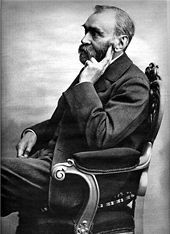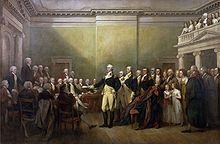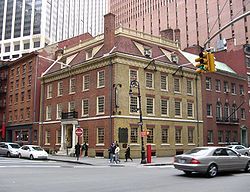Cross posted from The Stars Hollow Gazette
This is your morning Open Thread. Pour your favorite beverage and review the past and comment on the future.
December 11 is the 345th day of the year (346th in leap years) in the Gregorian calendar. There are 20 days remaining until the end of the year.
On this day in 1946, In the aftermath of World War II, the General Assembly of the United Nations votes to establish the United Nations International Children’s Emergency Fund (UNICEF), an organization to help provide relief and support to children living in countries devastated by the war.
After the food and medical crisis of the late 1940s passed, UNICEF continued its role as a relief organization for the children of troubled nations and during the 1970s grew into a vocal advocate of children’s rights. During the 1980s, UNICEF assisted the U.N. Commission on Human Rights in the drafting of the Convention on the Rights of the Child. After its introduction to the U.N. General Assembly in 1989, the Convention on the Rights of the Child became the most widely ratified human rights treaty in history, and UNICEF played a key role in ensuring its enforcement.
Of the 184 member states of the United Nations, only two countries have failed to ratify the treaty–Somalia and the United States. Somalia does not currently have an internationally recognized government, so ratification is impossible, and the United States, which was one of the original signatories of the convention, has failed to ratify the treaty because of concerns about its potential impact on national sovereignty and the parent-child relationship.
In 1953, UNICEF became a permanent part of the United Nations System and its name was shortened from the original United Nations International Children’s Emergency Fund but it has continued to be known by the popular acronym based on this old name. Headquartered in New York City, UNICEF provides long-term humanitarian and developmental assistance to children and mothers in developing countries.
UNICEF relies on contributions from governments and private donors and UNICEF’s total income for 2006 was $2,781,000,000. Governments contribute two thirds of the organization’s resources; private groups and some 6 million individuals contribute the rest through the National Committees. UNICEF’s programs emphasize developing community-level services to promote the health and well-being of children. UNICEF was awarded the Nobel Peace Prize in 1965 and the Prince of Asturias Award of Concord in 2006.
Most of UNICEF’s work is in the field, with staff in over 190 countries and territories. More than 200 country offices carry out UNICEF’s mission through a program developed with host governments. Seven regional offices provide technical assistance to country offices as needed.
Overall management and administration of the organization takes place at its headquarters in New York. UNICEF’s Supply Division is based in Copenhagen and serves as the primary point of distribution for such essential items as vaccines, antiretroviral medicines for children and mothers with HIV, nutritional supplements, emergency shelters, educational supplies, among others. A 36-member Executive Board establishes policies, approves programs and oversees administrative and financial plans. The Executive Board is made up of government representatives who are elected by the United Nations Economic and Social Council, usually for three-year terms.
Following the reaching of term limits by Executive Director of UNICEF Carol Bellamy, former United States Secretary of Agriculture Ann Veneman became executive director of the organization in May 2005 with an agenda to increase the organization’s focus on the Millennium Development Goals. She was succeeded in May 2010 by Anthony Lake.
UNICEF is an inter-governmental organization and thus is accountable to governments.

 On this day in 1901,
On this day in 1901, 
 The Joint Committee on the Conduct of the War was a
The Joint Committee on the Conduct of the War was a  John and I are in our Dakota kitchen in the middle of the night. Three cats – Sasha, Micha and Charo – are looking up at John, who is making tea for us two.
John and I are in our Dakota kitchen in the middle of the night. Three cats – Sasha, Micha and Charo – are looking up at John, who is making tea for us two.





 Marlon Brando‘s famous cry of “STELLA!” first booms across a Broadway stage, electrifying the audience at the Ethel Barrymore Theatre during the first-ever performance of Tennessee Williams‘ play A Streetcar Named Desire.
Marlon Brando‘s famous cry of “STELLA!” first booms across a Broadway stage, electrifying the audience at the Ethel Barrymore Theatre during the first-ever performance of Tennessee Williams‘ play A Streetcar Named Desire. An energy-trading company based in Houston, Texas, Enron was formed in 1985 as the merger of two gas companies, Houston Natural Gas and Internorth. Under chairman and CEO Kenneth Lay, Enron rose as high as number seven on Fortune magazine’s list of the top 500 U.S. companies. In 2000, the company employed 21,000 people and posted revenue of $111 billion. Over the next year, however, Enron’s stock price began a dramatic slide, dropping from $90.75 in August 2000 to $0.26 by closing on November 30, 2001.
An energy-trading company based in Houston, Texas, Enron was formed in 1985 as the merger of two gas companies, Houston Natural Gas and Internorth. Under chairman and CEO Kenneth Lay, Enron rose as high as number seven on Fortune magazine’s list of the top 500 U.S. companies. In 2000, the company employed 21,000 people and posted revenue of $111 billion. Over the next year, however, Enron’s stock price began a dramatic slide, dropping from $90.75 in August 2000 to $0.26 by closing on November 30, 2001.

